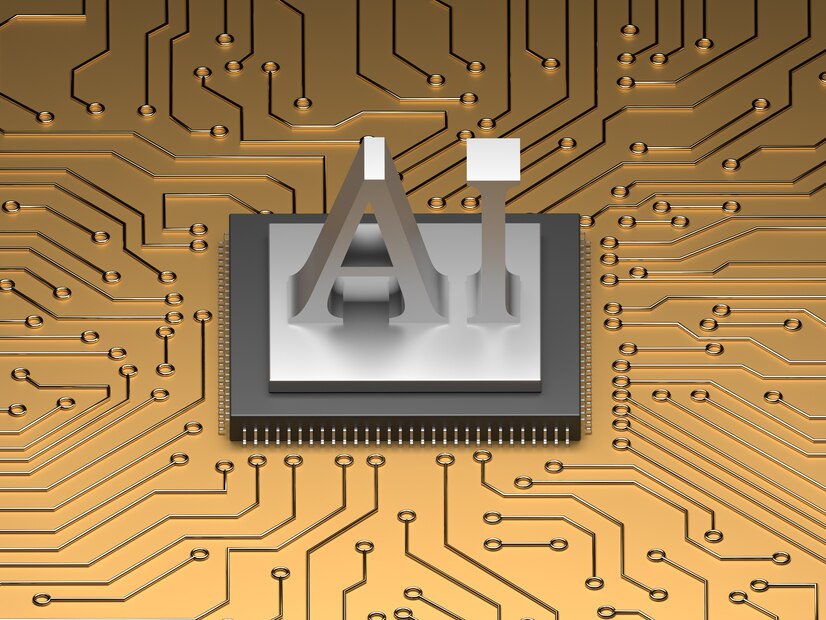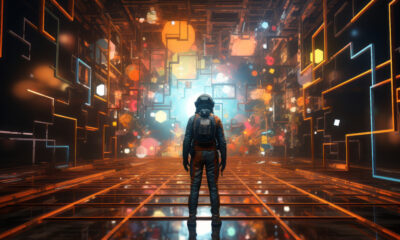SCIENCE AND TECHNOLOGY
“2030 Vision: The Revolutionary Impact of AI on All Aspects of Our Lives”
Unveiling the Future: How AI is Set to Revolutionize Every Aspect of Our Lives by 2030
Artificial Intelligence (AI) is no longer a futuristic concept confined to science fiction; it’s rapidly becoming an integral part of our everyday lives. As we approach 2030, AI is poised to revolutionize nearly every facet of our existence, from how we work and interact with technology to how we address global challenges. This post explores the transformative impact AI is expected to have over the next decade, offering a glimpse into the future that awaits us.
1. AI in Healthcare: A New Era of Precision and Personalization
The healthcare industry is on the brink of a monumental transformation driven by AI. By 2030, we can expect AI to significantly enhance the precision and personalization of medical care. Advanced algorithms will analyze vast amounts of medical data, leading to earlier and more accurate diagnoses. Personalized treatment plans, tailored to individual genetic profiles and health histories, will become the norm.
AI-powered diagnostic tools, such as imaging systems and predictive analytics, will improve early detection of diseases like cancer, enabling timely interventions and better outcomes. Additionally, AI-driven drug discovery and development will accelerate the creation of new treatments, addressing previously untreatable conditions and advancing personalized medicine.
2. The Evolution of Work: AI and Automation Redefining the Workforce
The workforce is undergoing a profound transformation as AI and automation reshape industries. By 2030, AI is expected to automate routine and repetitive tasks across various sectors, from manufacturing to finance. This shift will not only increase efficiency and productivity but also create new job categories and opportunities.
Workers will need to adapt to this new landscape by acquiring skills that complement AI technologies. Roles involving creativity, complex problem-solving, and emotional intelligence will become increasingly valuable. Lifelong learning and continuous skill development will be crucial for staying relevant in the evolving job market.

3. AI and Smart Cities: Building a More Connected and Efficient Urban Future
Smart cities are emerging as a key application of AI, leveraging technology to enhance urban living. By 2030, AI will play a central role in managing and optimizing city infrastructure. Intelligent transportation systems will reduce traffic congestion and improve public transportation efficiency through real-time data analysis and predictive algorithms.
AI will also enhance city services, from waste management to energy consumption. Smart grids will optimize energy distribution, reducing waste and lowering costs. Additionally, AI-driven surveillance and security systems will improve public safety while raising important discussions about privacy and data security.
4. Education and AI: Personalized Learning Experiences for Every Student
Education is set to become more personalized and adaptive thanks to AI. By 2030, AI-powered educational tools will cater to individual learning styles and needs, providing customized lesson plans and resources. Intelligent tutoring systems will offer real-time feedback and support, helping students to grasp complex concepts and improve their performance.
AI will also facilitate the development of new educational content and methods, making learning more engaging and accessible. Virtual and augmented reality, powered by AI, will offer immersive educational experiences, bringing subjects to life in ways that traditional classrooms cannot.
5. AI and Consumer Experience: Revolutionizing How We Interact with Technology
The consumer experience is poised for a major overhaul as AI technologies become more advanced. By 2030, AI-driven virtual assistants will handle a wide range of tasks, from managing daily schedules to providing personalized recommendations. These assistants will understand natural language more accurately and offer contextual, intuitive responses.
E-commerce will be transformed by AI-powered personalization, with algorithms predicting consumer preferences and offering tailored product suggestions. Virtual try-ons, powered by augmented reality and AI, will enhance online shopping experiences, allowing customers to visualize products before making a purchase.
6. Ethical and Societal Considerations: Navigating the AI Landscape
As AI becomes more integrated into our lives, ethical and societal considerations will be paramount. Issues such as data privacy, algorithmic bias, and the potential for job displacement will require careful attention. By 2030, establishing robust frameworks for AI governance and ethics will be essential to ensure that AI technologies are used responsibly and equitably.
Public discourse and policy development will play a crucial role in addressing these challenges, ensuring that AI advancements benefit society as a whole while mitigating potential risks.
Conclusion: Embracing the AI-Driven Future
As we look toward 2030, it is clear that AI will be a transformative force, reshaping industries, enhancing our daily lives, and addressing complex global challenges. Embracing this future requires a proactive approach to understanding and adapting to AI technologies, while also addressing the ethical and societal implications that accompany their development.
The journey ahead promises to be both exciting and challenging. By staying informed and engaged, we can navigate the AI revolution with confidence and optimism, ensuring that its benefits are realized across all aspects of our lives.
Feel free to leave your thoughts or questions about the future of AI in the comments below. How do you envision AI impacting your life by 2030? Let’s start the conversation!
-

 Food and Recipes10 months ago
Food and Recipes10 months ago“2024’s Top 15 Must-Try Meals: A Delicious Culinary Journey Through This Year’s Hottest Dishes”
-

 SCIENCE AND TECHNOLOGY10 months ago
SCIENCE AND TECHNOLOGY10 months ago“11 Game-Changing AI Technologies: Discover the Latest Trends Shaping the Future”
-

 ENTERTAINMENT10 months ago
ENTERTAINMENT10 months agoTop 35 Must-Play Games of 2024: The Best Picks So Far
-

 FASHION AND MAKEUP10 months ago
FASHION AND MAKEUP10 months agoUnlock the Power of Aloe Vera: 15 Incredible Uses You Need to Try Today
